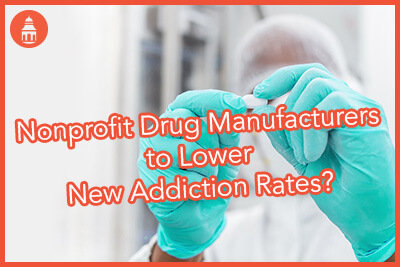For too long, the general public has labored under the assumption that addiction is a moral issue rather than a medical disorder. That is, many believe that someone who is struggling with a substance use disorder has a major character flaw, no willpower, and is choosing to live a life defined by drugs and alcohol.
The fact is, however, that the medical community has long identified substance use disorders as medical ailments that impact the brain as well as the body. The shape and size of neurons in some areas of the brain change with prolonged drug and alcohol use, contributing to the personality changes and drive to compulsive behavior that often define addiction. This is not an issue that can be altered through sheer willpower. Rather, intensive medical detox and therapeutic treatment are necessary to help the person to stop using all drugs and alcohol safely while also learning how to remain abstinent for the long-term.
Ongoing Stigma
Unfortunately, even after someone stops using drugs and alcohol, attending a comprehensive detox and addiction treatment program, and putting in great effort to get and stay clean and sober, the stigma can persist. Those who believe that addiction is a moral failing may continue to distrust someone in recovery, concerned that a return to active drug and alcohol use is impending. This can translate into lack of work opportunities, lack of options for housing, and frustrating social obstacles for the person working to create a new life.
Proponents of Language Change
In attempting to address the issue of stigma and how best to help the public better understand the nature of addiction as well as treatment, some say that language may play a role. Many who advocate for changes to the “language of addiction” say there should be a shift from current common terms to the use of medical terminology that lacks the judgment so often found in current terms referencing addiction, says The Boston Globe.
They advocate for dropping terms like addict, junkie, substance abuse, and substance abuser from the language used to discuss addiction, citing these words as negative and contributing to the ongoing stigma. Not only do advocates for language change believe that these words can contribute to the public’s view of addiction, but they say that these words also serve to make it more difficult for people who need treatment to seek help. Not wanting to ally themselves with such a negative stereotype, many may deny they have a problem or refuse to reach out for help and risk revealing their struggle to the outside world. Additionally, there is even the thought that some healthcare professionals may treat people who struggle with addiction harshly based on the stigma attached to these words.
Dr. Barbara Herbert is the Massachusetts Chapter President of the American Society of Addiction Medicine (ASAM). She says: “The biggest thing we trade in is hope. Our biggest enemy is hopelessness. That’s why I think language matters a lot.”
Which Words Should Go?
There is some disagreement even among those who believe that current addiction language is harmful to those living with addiction as to exactly which words should be dropped and which words should take their places.
For example, to drop the word abuse from terms related to addiction is problematic, though the tone of the word is clearly negative. There are nonprofit organizations who advocate for people living with addiction, government agencies who support and fund research into addiction treatment, and scientific journals dedicated to a better understanding of the nature of the disorder that have terms like drug abuse and substance abuse in their names. It is difficult for everyone to agree how best to institute positive language change – and then there are those who do not believe that any change is needed.
Michael Botticelli is not one of them. He is the director of the Office of National Drug Control Policy (ONDCP), and he is dedicated to create a standardized language used by the federal government to talk about addiction that eliminates any terms that could be construed as negative.
Botticelli points to the word dirty to describe a drug test that comes back positive for substance use – and the contrasting use of the word clean to define those who are drug-free. He says: “I can’t think of a more telling example of judgmental terminology. We don’t say for a diabetic whose blood sugar spikes that they have a ‘dirty blood sugar.’”
Language Matters
While the way we talk about something can have a huge impact on how that thing is perceived, it is no simple feat to uproot the language that is embedded in a culture. It is true that the term junkie and addict have connotations that do not necessarily encourage understanding or support in the listener, but it is also true that it will take some serious work to alter the language used to discuss addiction and those who are impacted by it on a large scale.
What do you think? Is it important to address the language used to talk about addiction and the people who are living with the disorder?



